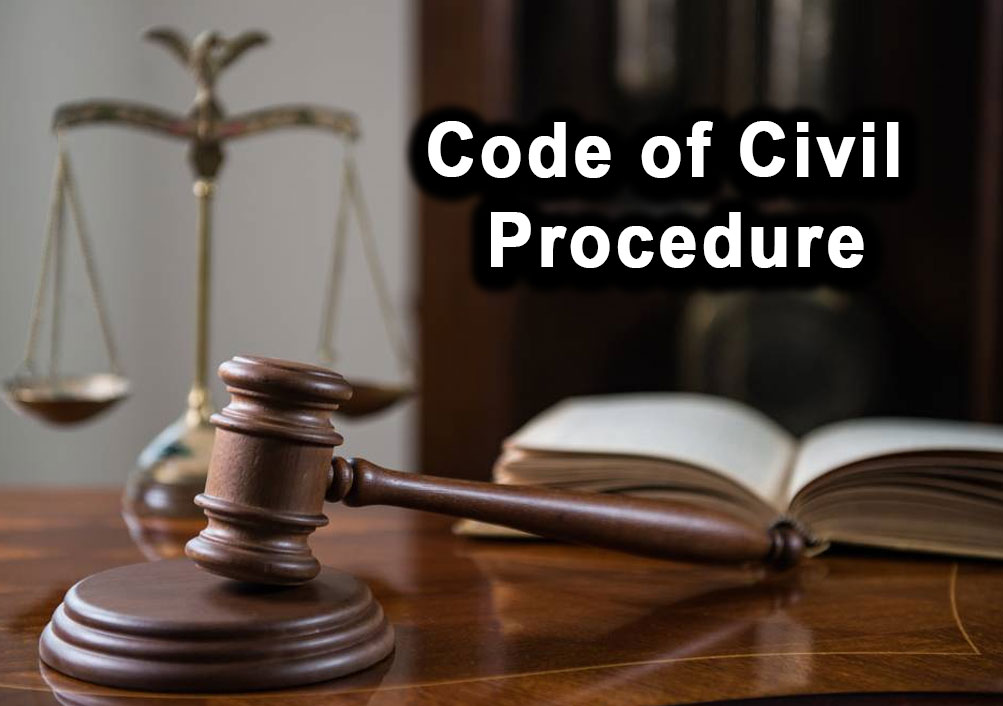In CIVIL APPEAL No.1117 of 2009-SC-Appellate Court should consider evidence on record and form points for determination under Order XLI Rule 31 CPC, rules Top Court while expressing disapproval over Karnataka HC’s decision of partly allowing first appeal in cursory & cryptic manner Justices S.Abdul Nazeer & Vikram Nath [13-06-2022]

Read Order: SOMAKKA (DEAD) BY LRS Vs. K.P. BASAVARAJ (DEAD) BY LRS On
Tulip Kanth
New Delhi, June 14, 2022: While expounding the law on the duty, scope and powers of the First Appellate Court u/s 96 r/w Order XLI Rule 31 of the CPC, the Supreme Court has held that the Karnataka High Court committed a serious error in neither forming the points for determination nor considering the evidence on record, in particular which had been relied upon by the Trial Court.
“Section 96 of the CPC provides for filing an appeal from original decree. Further Order XLI Rule 31 of the CPC provides for the contents of the judgment of the First Appellate Court. According to it, the judgement of the Appellate Court shall be in writing and would include the points for determination, the decision thereon, the reasons for the decision and where the decree is reversed or varied, the relief to which the appellant is entitled,” clarified the Division Bench of Justice S.Abdul Nazeer and Justice Vikram Nath.
The facts that led to filing of the present appeal were that the appellant-plaintiff instituted a suit in the Court of the City Civil Judge, Bangalore, wherein the sole defendant is the respondent herein (brother of the appellant). Primarily, two reliefs were claimed in the said suit; firstly a partition and separate possession of one fourth share in properties described at item nos. 1 and 2 and half share in the property described in item no. 3 of Schedule A to the plaint. The second relief prayed was for a decree of specific performance of the agreement and sale with respect to the property described in Schedule B to the plaint. The claim set up by the appellant was that properties described in Schedule A were ancestral properties and, therefore, upon the death of her father, she would be entitled to one- fourth share and further that the property described as item no.3 of Schedule A was exclusively occupied by her father who had applied before the revenue authorities for being declared as an occupant.
The Additional City Civil Judge decreed the suit declaring that the appellant was entitled for one-fourth share in properties described as item nos. 1 and 2 and half share in item no. 3 of Schedule A and for separate possession by metes and bounds. It directed the respondent to execute the sale deed in respect of the property described in Schedule B of the plaint.
When the respondent preferred an appeal under Section 96 of the Code of Civil Procedure, 1908 before the High Court of Karnataka, and the High Court upheld the one- fourth share of the appellant in the property described at item nos. 1 and 2 of Schedule A but held that the appellant would be entitled for one-fourth share in the property described at item no. 3 of Schedule A and not half share as decreed by the Trial Court. Aggrieved by the same, the appellant had filed the present appeal with respect to the reduction of her share.
The only issue which survived for consideration was if the appellant was entitled to half share or one-fourth share in the property described at item no. 3 of Schedule A property over which occupancy rights under the Inam Act were claimed. Remaining claim of the appellant regarding half share in item nos. 1 and 2 of Schedule A and Schedule B properties stood closed at the stage of first appeal before the High Court.
Affirming that the High Court did not consider the evidence considered by the Trial Court and referring to sec.96 r/w Order XLI Rule 31 CPC,the Bench opined that neither did it deal with the statements or the other documentary evidence on record and only on a bald statement of the respondent, it reduced the share of the appellant.The Bench also referred to the judgments in Kurian Chacko vs. Varkey Ouseph, Santosh Hazari Vs. Purushottam Tiwari (Dead) By Lrs, Vinod Kumar Vs. Gangadhar, Manjual and others vs. Shyamsundar and Others in order to put forth the settled legal principles on the scope and powers of the First Appellate Court.
Thus, in order to put a quietus to the litigation and relieve the parties from any further harassment, the Bench set aside the judgment of the High Court and confirmed the judgment of the Trial Court to the extent it related to item no. 3 of Schedule A property described in the plaint, thereby concluding that the appellant and the respondent would be entitled to half share each in the said property. The Apex Court also directed the Trial Court to accordingly proceed to draw out the proceedings for final decree of partition.
Sign up for our weekly newsletter to stay up to date on our product, events featured blog, special offer and all of the exciting things that take place here at Legitquest.




Add a Comment